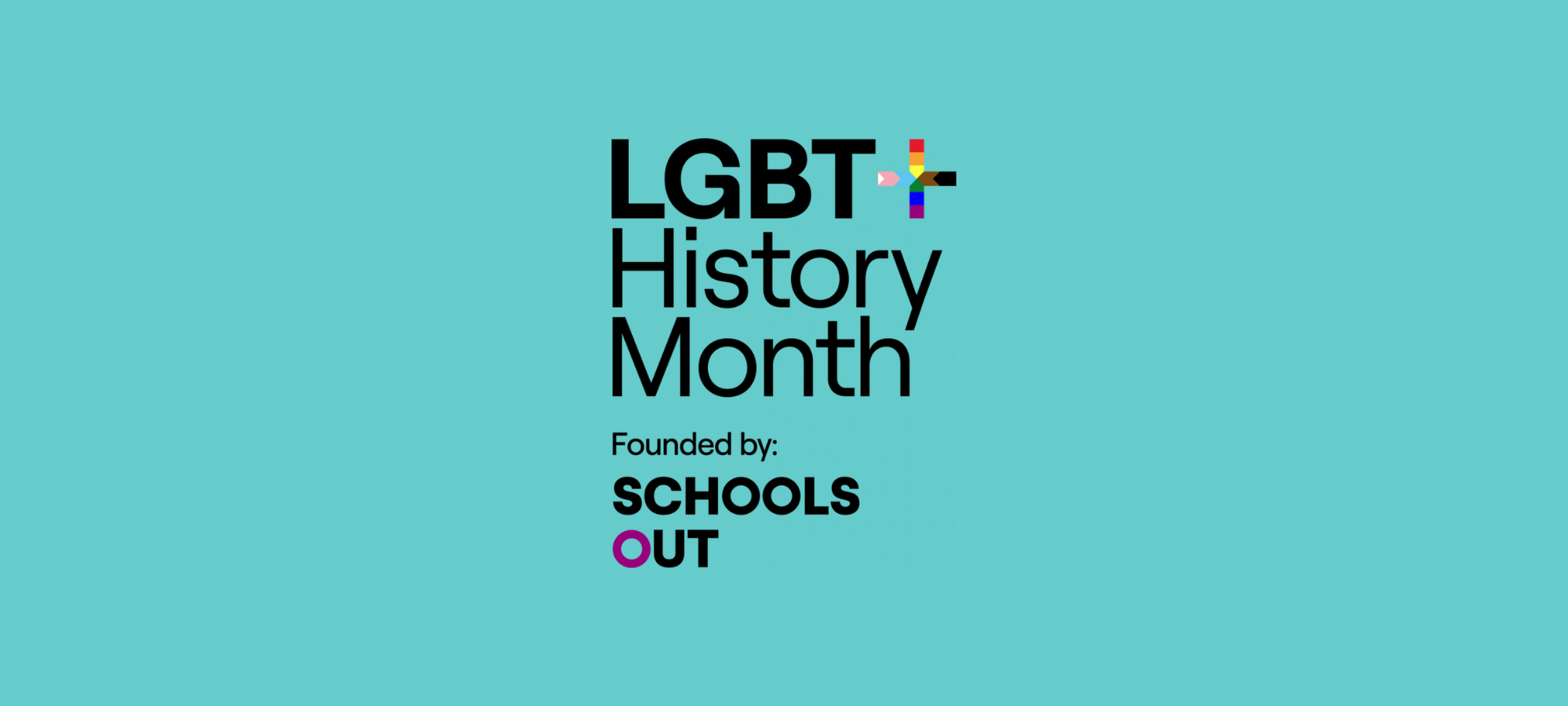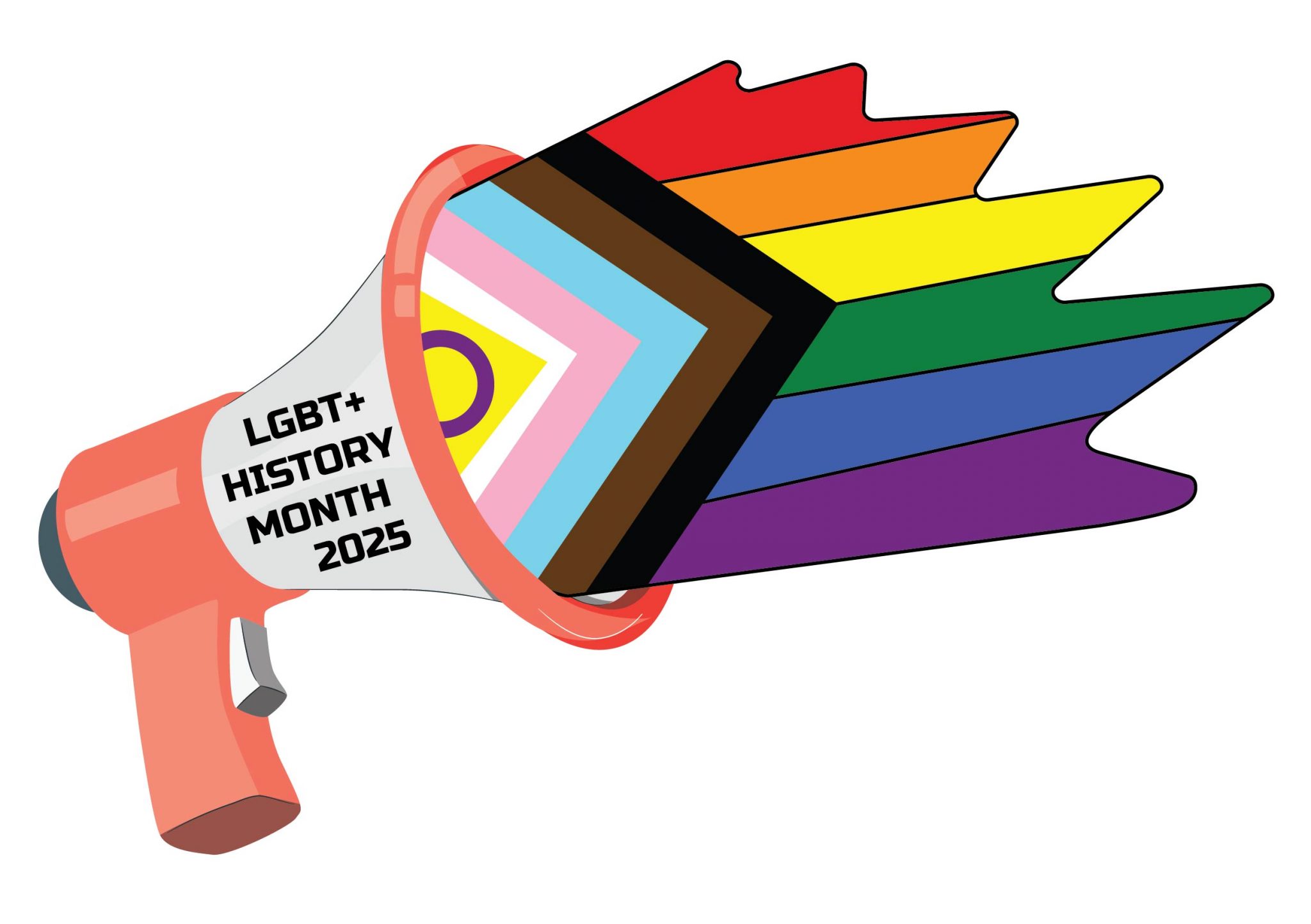
This LGBT+ History Month, we’re sharing a guest blog from Tilly! Tilly works with us as an ETL Developer, and is kindly sharing some helpful information around LGBT+ History Month. Let’s hear from Tilly.
I’m Tilly, and I’ve worked at Everyturn for nearly 2 years as an ETL Developer. I identify gender nonconforming, and use she/they pronouns. I was really pleased to be asked to write about LGBTQ+ history month, mostly because I didn’t really know much about it myself! It was amazing to learn about the background and delve into the lives and experiences of the historical figures, to learn and appreciate their contribution, not just to the LGBTQ+ movement, but to the world that we inhabit today.
While some were activists, protestors and worked tirelessly to promote fairness and equality, others were just trying to live their lives and to better the lives of those around them. They are all inspirational and have left ongoing legacies that we enjoy to this day. They deserve to be recognised and celebrated, and that’s what LGBTQ+ history month is all about. It is a celebration of diversity and coming together, to revel in what makes us individuals but to also stand together for freedom, justice and equality.
These people were aiming to leave the world a slightly better place than when they entered, not just for their friends and family, but for everyone. My take away from this is that you may not be able to change the world, but you can be a positive change to someone’s world!
What is it?
A month to raise awareness, educate and promote equality for the LGBTQIA+ community and to recognise and honour the achievements, contributions and struggles of gay, lesbian, bisexual and transgender individuals. Every year, 5 historical figures who have created social change across the centuries are celebrated.
The month originated in the US and over time observance spread to other countries, including the UK. It has grown in significance and visibility and serves as a reminder of the progress made in LGBTQ+ rights and the work that remains to be done to achieve equality.
Why is it in February?
February was chosen to mark the month that the Section 28 law (the law which prevented the ‘promotion’ of homosexuality) was abolished in 2003. The first LGBT+ history month was celebrated in 2005, marking 2025 as the 20th anniversary.
What is the theme?
Activism and Social Change #SocialActivism
Why is it important?
- Remember those across the world who live without rights
- Learn about historic LGBTQIA+ figures and events
- Encourage inclusivity and understanding in the workplace
- Remember how far we have come in the fight for equality
- Build a better world for young LGBTQIA+ professionals
How can I get involved?
Attend events, share stories, educate yourself, advocate for inclusivity, donate to charity, make a diversity pledge and engage on Social Media.
Who are the Historical Figures?
Octavia Hill
- Born in Wisbech in 1838, she is one of the 3 founders of the National Trust.
- Worked to promote urban housing and campaigned to protect green spaces.
- Campaigned to open up graveyards and to save Parliament Hill from developers so that London’s green spaces could protected for local communities.
- Bought neglected and decaying properties in London, overhauling them and transforming tenants lives.
- In 1877, along with her sister Miranda, she formed the Kyrle Society, with the aim of bringing beauty, nature, arts and music to everyone.
- Helped the National Trust to buy and protect its first land and houses and campaigned for the preservation of footpaths to ensure everyone had right of access to land.
- Fought for the preservation of the countryside until her death in 1912.
- Octavia Housing continues to provide homes for thousands of people in inner-city London.
Ivor Cummings
- Worked in Aggrey House, a hostel set up for African students and people of African descent, hostels like this were open to accommodate students who may face being barred from renting rooms.
- Ivor was gay and socialised in Black queer intellectual circles, in an era where sex acts between men were criminalised.
- Became the first black person to obtain a position in the Colonial Office in 1941 and received an OBE for his work in June 1948.
- Was sent to meet the Caribbean passengers travelling on the Empire Windrush, tasked with organising many aspects of the passengers arrival, including transport and temporary accommodation.
- In a time of racial hostility, he was an important advocate for the rights of black people in Britain and abroad.
Annie Kenney
- Agreed to hold a meeting for women factory works on hearing about ‘Votes for Women’, spent the summer of 1905 travelling around Lancashire speaking for woman’s suffrage.
- Friday 13th October 1905, Annie and Christabel Pankhurst attempted to ask the question at a meeting in the Free Trade Hall, Manchester, which was attended by Winston Churchill and Sir Edward Grey. ‘If you are elected, will you do your best to make Woman Suffrage a government measure?’
- In 1906, along with Minnie Baldock, created the Canning Town branch of the Women’s Social and Political Union (WSPU)
- In 1907 she set up the WSPU’s West of England branch and until 1911, organised a number of protests including organising a group of women to travel around on a caravan to avoid the 1911 census.
- Arrested for incitement in 1913 and received an 18 month sentence in Maidstone Jail. She was the first woman to be released under the ‘Cat and Mouse Act’ which released hunger striking women to prevent death in jail, and re-arrested on recovery. She was arrested a total of 13 times.
- In 1914, when the WSPU suspended all militant activities on the outbreak of WW1, she encouraged women to become munitions workers.
- Worked hard on Christabel’s unsuccessful parliamentary campaign, wrote an unpublished pamphlet on famous British women, wrote an autobiography ‘Memories of a Militant’ published in 1924 and had retired from politics at this stage.
Charlie Kiss
- Joined the lesbian feminist community in York and regularly attended anti-nuclear protests in London, where he was arrested and charged for the first time, just after his 17th birthday.
- In 1993 he was one of 44 women who broke through the fence at Greenham Common (where he was living in a tent whilst completing his A-levels) and danced on top of the missile silos. He received brief prison sentence.
- He campaigned against poor working conditions for workers and the culture of significant sexism and racism.
- In 2002 he began the transition to being male, and describes his mental health problems that stemmed from gender dysphoria in his memoir ‘A New Man: Lesbian. Protest. Mania’.
- In 2015 he became the first trans man to run for Parliament in the UK, standing for the Green Party, though not elected he won a record of 8% of the vote.
- At the Green Party conference he organised a panel looking at gender diversity and discrimination faced by trans, intersex and non-binary people.
- He died in 2019 of an incurable lung condition.
- His legacy includes better support and NHS funding for trans people. He has a plaque dedicated to him outside the Lamb pub on Holloway Road as the first trans man to stand for Parliament.
Olaudah Equiano
- In Virginia, he was sold to a Royal Navy Officer in Virginia, who renamed him Gustavus Vassa, after the 16h century Swedish King.
- After sailing with Lieutenant Michael Pascal for 8 years, he was sold to a ship captain, who sold him to a merchant in Montserrat.
- Earned enough money working as a deckhand, valet and barber by trading on the side to buy his own freedom and spent the next 20 years travelling the world.
- In 1786 he became involved in the movement to abolish slavery and was a prominent member of the ‘Sons of Africa’, a group of 12 black men who campaigned for abolition.
- In 1789 he published his autobiography ‘The Interesting Narrative of the Life of Olaudah Equiano or Gustavus Vassa, the African’.
- The book helped the abolitionist cause and made Equiano a wealthy man, it is one of the earliest books published by a black African writer.
Hashtags
#LGBTHistoryMonth, #LoveIsLove, #Pride, #EqualityForAll, #LGBTQHistory
Using these hashtags can help amplify the message of love, acceptance, and equality for all members of the LGBTQIA+ community.
To find out more about mental health in LGBTQIA+ communities, read our blog here.
References:
-
https://lgbtplushistorymonth.co.uk/lgbt-history-month-2025/
-
https://www.awarenessdays.com/awareness-days-calendar/lgbt-history-month-2025/
-
https://lgbt-speakers.com/news/general-news/faq-lgbt-history-month
-
https://education.rebootthefuture.org/calendar/lgbt-history-month/#:~:text=The%20day%20was%20first%20held,homosexuality%2C%20was%20abolished%20in%202003.
-
https://www.nationaltrust.org.uk/discover/history/people/octavia-hill-her-life-and-legacy
-
https://www.pipstickswalks.co.uk/blog/octavia-hill-we-all-need-space
-
https://beta.nationalarchives.gov.uk/explore-the-collection/stories/ivor-cummings/
-
https://suffragettestories.omeka.net/bio-annie-kenney
-
https://www.bishopsgate.org.uk/collections/charlie-kiss-archive#:~:text=Charlie%20Kiss%20(1965%E2%80%932022),Devon%20and%20then%20to%20York.
-
https://www.bbc.co.uk/history/historic_figures/equiano_olaudah.shtml
